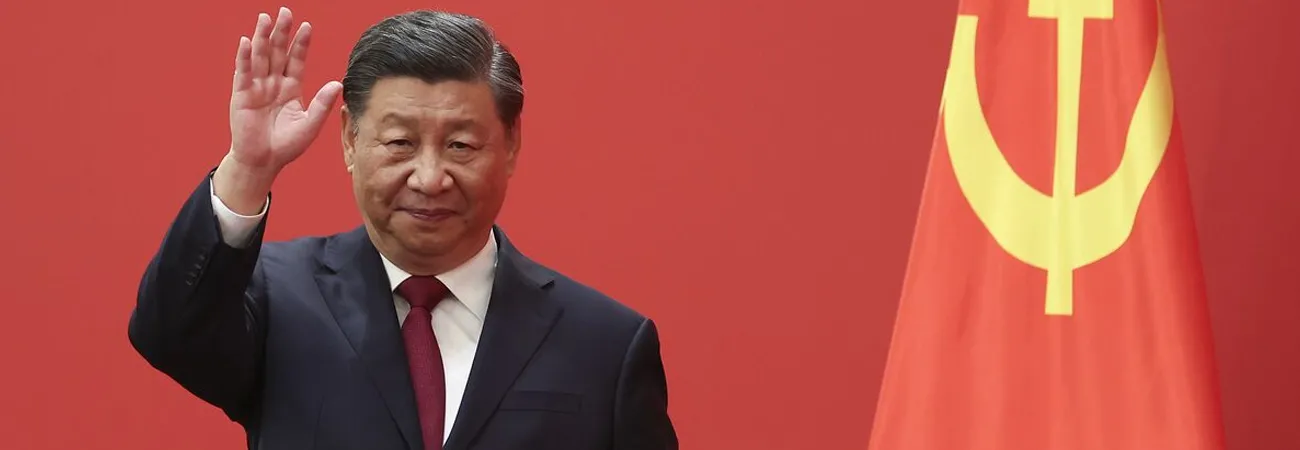i NEWS INTERNATIONAL
China and France poised to bolster bilateral ties and reiterate their commitment to fortifying their partnership amid shifting global landscapes. The discussions and agreements during Xi's third state visit to France, following visits in 2014 and 2019, are expected to encompass a broad spectrum of critical areas. From trade and investment to innovation and cultural exchange, the agenda reflects the comprehensive nature of the bilateral relationship between China and France. Meanwhile, the visit will go beyond being bilateral. Dialogues on international and regional issues of mutual concern, as well as multilateral cooperation, are anticipated. This emphasizes the enduring tradition of both nations' shared dedication to addressing complex challenges through collaborative diplomatic endeavors. Noting that multilateralism appears to be "the most effective way of resolving most of the problems of our multipolar world," former French Prime Minister Laurent Fabius said that France and China share "certain similar, if not identical, visions of global governance." In a signed article published Sunday in French media Le Figaro, Xi noted that the longer the Ukraine crisis drags on, the greater harm it will do to Europe and the world.
"China hopes that peace and stability will return to Europe at an early date. We stand ready to work with France and the whole international community to find a reasonable way out of the crisis," Xi said in the article. As to the ongoing Palestinian-Israeli conflict, Xi noted in the article that China and France have many in common on the Palestine-Israel issue. "It is thus critical that we strengthen cooperation and help restore peace in the Middle East." This visit, Xi's first trip to Europe in nearly five years, coincides with the 60th anniversary of establishing diplomatic ties between China and France, a milestone event in China-Western relations. The decision of France to establish diplomatic ties with China 60 years ago went against the prevailing attitudes of the major Western powers at the time, Eric Alauzet, president of the France-China Friendship Group of the French National Assembly, said here Saturday at a forum on France-China people-to-people and cultural exchanges. "France and China can now look back on a singular history," he said. In his written speech upon arrival on Sunday, Xi said in the 60 years since, the bilateral relations have always stayed abreast of China's relations with Western countries, setting a prime example for countries with different social systems to coexist in peace and pursue win-win cooperation.
The development of China-France bilateral relations attests to Xi's remarks. Despite differing political systems, the two countries have forged a robust partnership marked by cooperation and mutual respect. Apart from being the first major Western nation to formalize diplomatic relations with China in 1964, France is the first major Western country to form a comprehensive strategic partnership with China. The European country is also the first Western nation to strike a deal with China for air transportation and the first to cooperate with China on civil nuclear energy projects. This visit unfolds amid calls from certain Western policymakers for "de-risking" from China. However, the fruitful win-win cooperation between China and France serves as a robust rebuttal to such protectionist rhetoric. Over the past 60 years, bilateral trade between China and France has surged dramatically, increasing 800-fold to reach 78.9 billion U.S. dollars last year. From 2019 to 2023, China's imports and exports with France grew by 5.9 percent annually.
China is now France's largest trading partner in Asia, while France ranks as China's third-largest trading partner and the third-largest source of investment in real terms within the European Union. Moreover, data from China's General Administration of Customs underscores France's pivotal role beyond agricultural imports. France is also a critical source of imports for aircraft and aerospace components, constituting approximately 30 percent of China's total import volume in these sectors over the past five years. Meanwhile, according to a 2023 survey of French companies in China conducted by the French Chamber of Commerce and Industry in China, 47 percent of member companies are planning to further invest in China. "The importance of the Chinese market, from my point of view, has not changed," Barbara Frei, the executive vice president of Schneider Electric, told Xinhua. She voiced confidence in China's position as a more mature economy and the biggest market in industrial automation and highlighted China's role as an "innovation driver."
Credit: Independent News Pakistan









